Tracy Moseley on everything you need to know about e-MTB racing
After an incredible career, MTB legend Tracy Moseley is now winning e-MTB events. She gives us the lowdown on e-MTB racing, how to get started and the bike technology involved
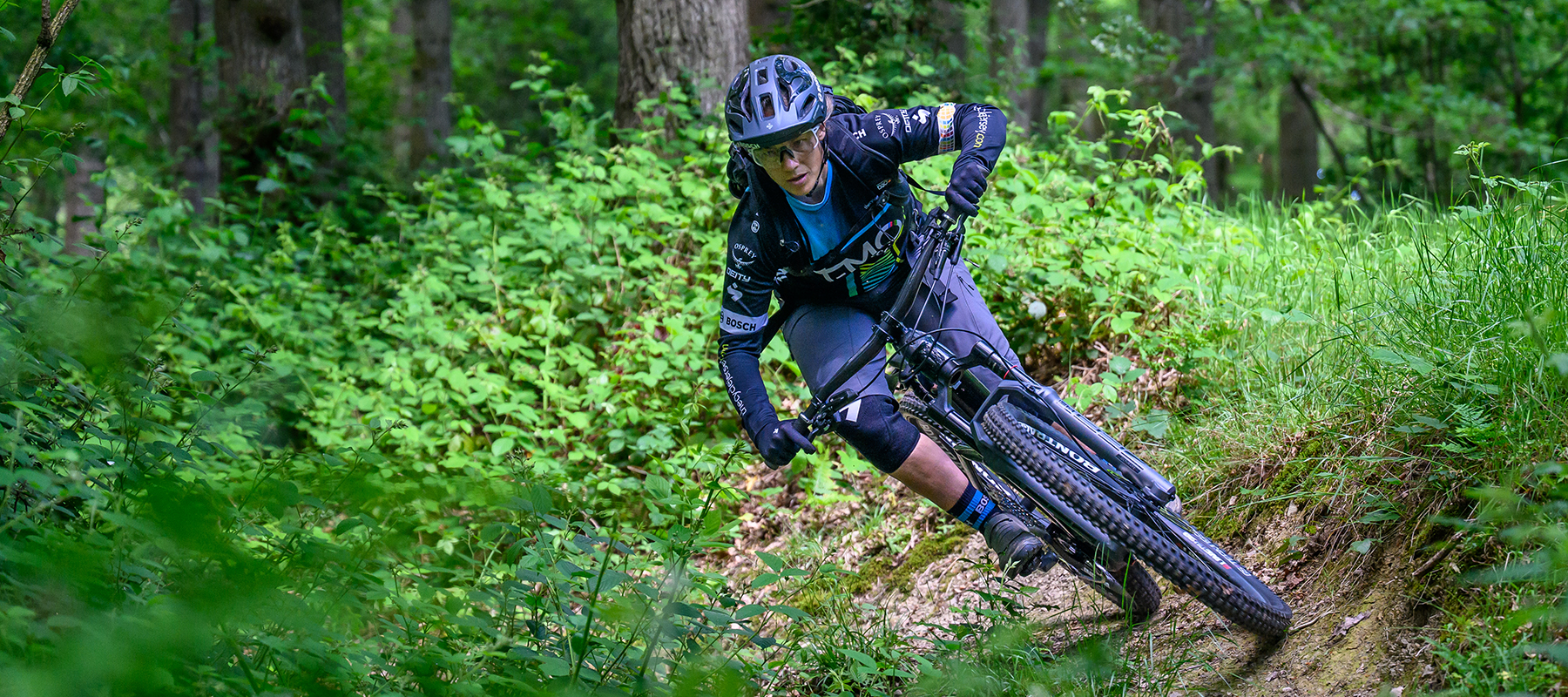
Anywhere you ride these days it’s hard not to see someone on an electric bike. Previously it was the commuting world where I first saw the use of the e-bike and e-cargo bikes, but now you see e-bikes in all types of mountain bike environments, from family trails to big mountain terrain and now e-bike racing. In 2022 we have three well-established international e-MTB racing series taking place across Europe.
World E-Bike Series (WES)
This is an e-version of the Olympic XCO cross country mountain bike discipline. The WES Series began in 2019 and quickly became the first-ever UCI (Union Cycliste International) E-Mountain Bike Cross-Country World Cup in 2020. WES races are held on racetracks designed to make the most out of an e-bike. They consist of one loop of 3-4km long, repeated multiple times, for an average of seven laps, with a total distance of 20-30km, and a total climbing between 1000 and 1400m – around one hour of racing where changing and recharging batteries is not allowed.
Women and men compete together, with the same mass race start, but have different classifications and podium ceremonies. Now in 2022 the series is an eight round XC only race format, racing both Saturday and Sunday, often using the course in reverse on the Sunday.
WES races are open to any UCI-licenced riders and wildcards (19+, no age categories). All riders have to qualify before each race so, twice a weekend, and the top 50 women and top 50 men access the starting grid.
For more info, head to the World E-Bike Series website.
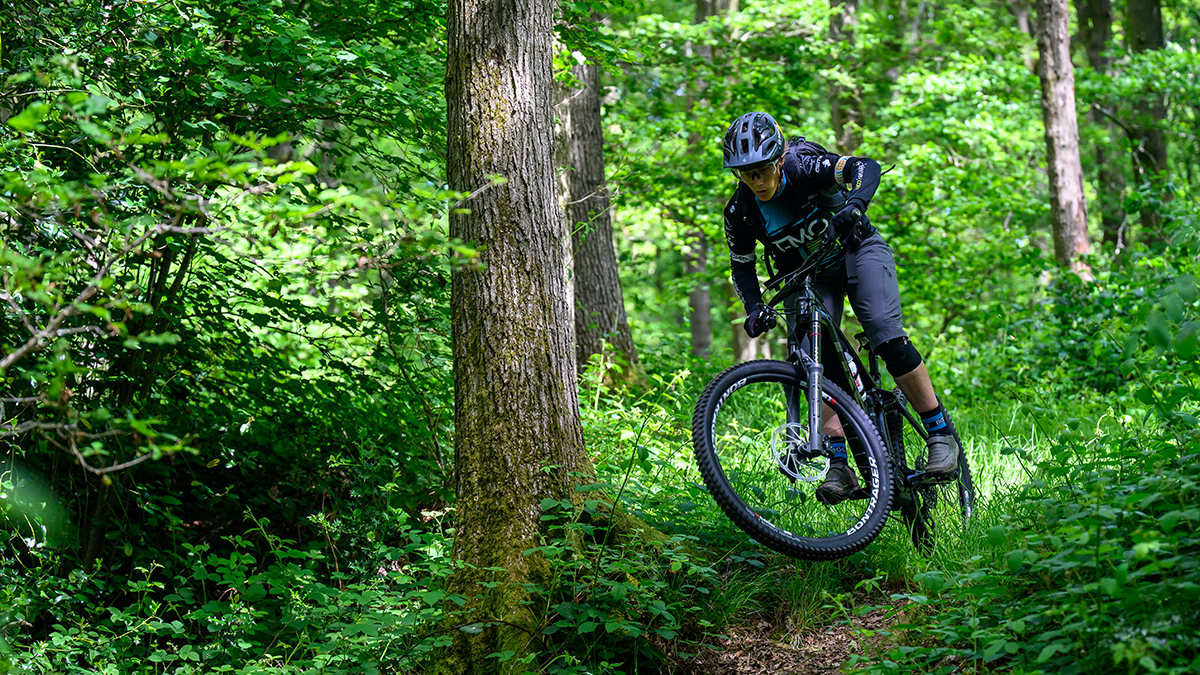
E-Bike World Tour (EBWT)
Rather than XC style laps like the WES, the EBWT is a more of a marathon/adventure style format following along the lines of multi-day marathon, adventure MTB racing such as the Cape Epic in South Africa.
I was fortunate to take part in the first ever EBWT race in 2019, a three day Tour Du Mont Blanc, covering 250km and 9000m of ascending over the three days. It was a gruelling event where we had to carry a second battery in our backpacks and even push and carry our bikes over some high mountain passes! It was an incredible experience and journey to ride around Mont Blanc in three days.
The EBWT is now a three-stop series where adventure is at the forefront of its goal and there is mix of long timed stages, mixing technical uphill and downhill.
Riders race solo or in pairs and need to be self-sufficient for many hours on the trails, but will have a battery exchange point mid race to take a new battery. The batteries are all charged overnight for the next day's racing. There is a limit to the amount of battery power you can use each day to keep the racing fair.
The series is part of three big e-bike festivals taking place in 2022 in Flachau Austria, June 24/25, Tignes, France July 29/30 and Verbier, Switzerland Aug 10-12.
Up until now these events were invitation only but now in 2022 the races are open to the public. Find out more info at the E-Bike World Tour website.
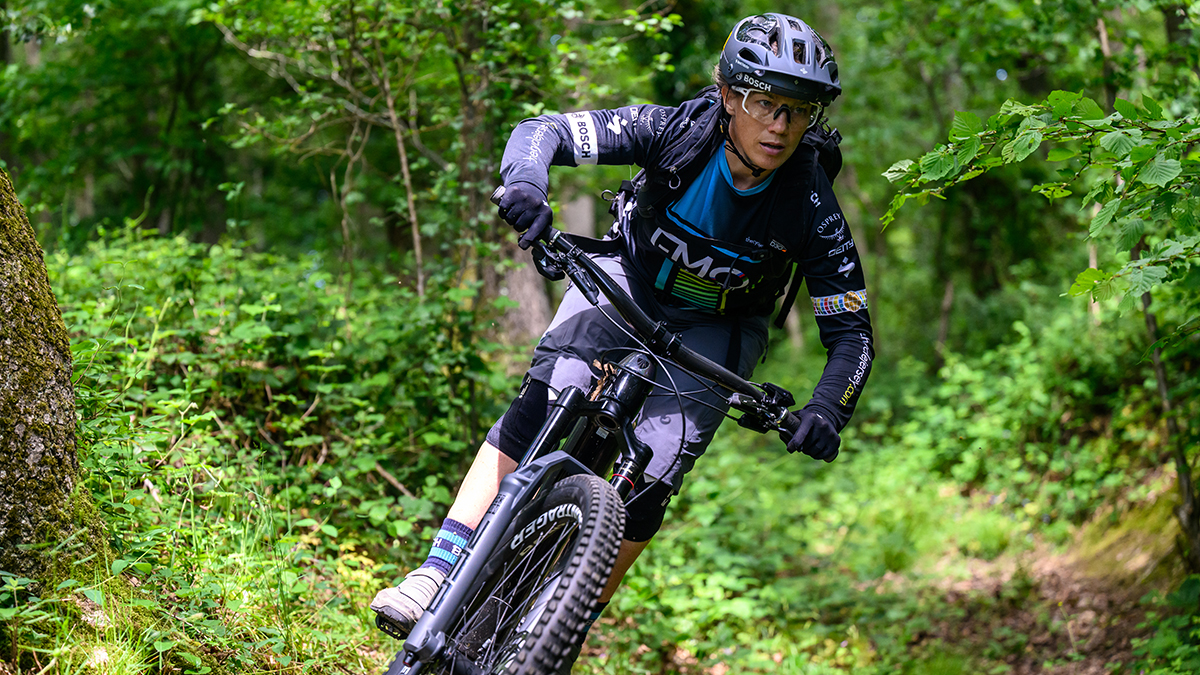
Enduro World Series E (EWS-E)
This is the e-bike version of the Enduro World Series – a multi stage timed downhill event with the addition of a power (uphill) stage.
2020 was the first time we saw an e-bike race alongside the traditional enduro races, as the organisers of EWS wanted to start to "reflect the rapid growth of electric mountain biking and to showcase what these incredible bikes are capable of".
The EWS-E follows a similar format to the EWS; riders complete a number of timed descending stages and the rider with the quickest overall time wins. However in EWS-E, the liaisons between the stages are usually singletrack and the timeframe to complete them is incredibly tight – there's no let-up for the riders. There's also the addition of the Power stage in EWS-E; a fiercely technical uphill climbing stage where extra series points are up for grabs.
EWS-E is definitely a good place for someone new to start e-bike racing as it offers a few different levels to start with the EWS-E100 and EWS-E50. Neither of these races have any pre-qualification criteria and you can choose the length of course that is right for you; the EWS-E100 is a challenging day out that follows the same course as the pro riders, whilst the EWS-E50 is roughly half the length of the full course.
Find out more info and how to enter at the Enduro World Series website.
Competing at the 2022 EWS-E, Tweed Valley
In 2022 the first round of the EWS-E series was held in Scotland at the end of May. I was lucky enough to race this event, and enjoyed 13 stages across three loops around Innerleithen. It was a tough race, as making the tight start times for each stage meant there was no time to take a breather or even enjoy the view; most of the day was spent in Turbo mode at 25kph dodging trees!
It was also the first event aboard my new 2022 Trek Rail e-MTB, so I was really happy to hop out of retirement and motherhood to take second place behind current e-bike World Series Champion Laura Charles from France. It was also great to see a lot of new e-MTB teams and brands at the EWS, taking the e-bike racing as their main focus, showing just how much this discipline is set to grow over the next few years.
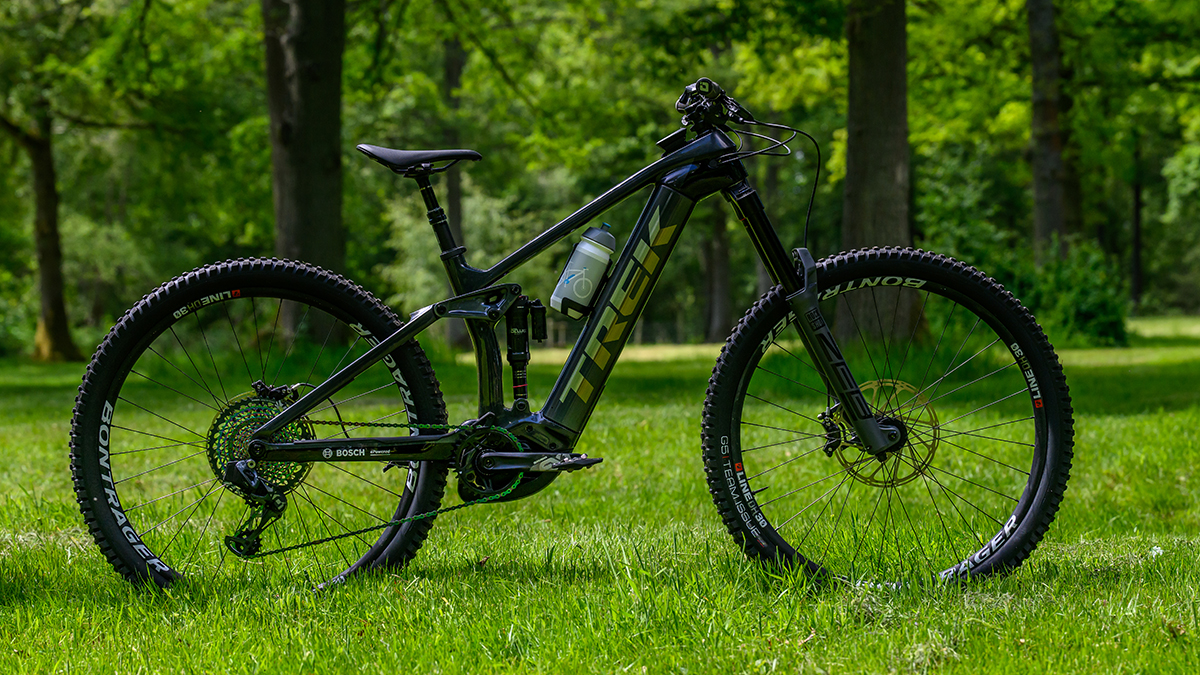
E-MTB tech
Technology of e-bikes is evolving so rapidly and each year we are seeing so many changes to bikes, each brand adding more and more e-bikes to their lineup of bikes.
E-bike racing has different demands to commuting or multi-day adventures so brands are adapting bikes to fit the different needs. The 2022 Trek Rail has the new Bosch smart system which is the latest in technology and connectivity allowing you to make changes with the Bosch Flow app, so you can customize your power delivery and also keep track of your data and journey, etc.
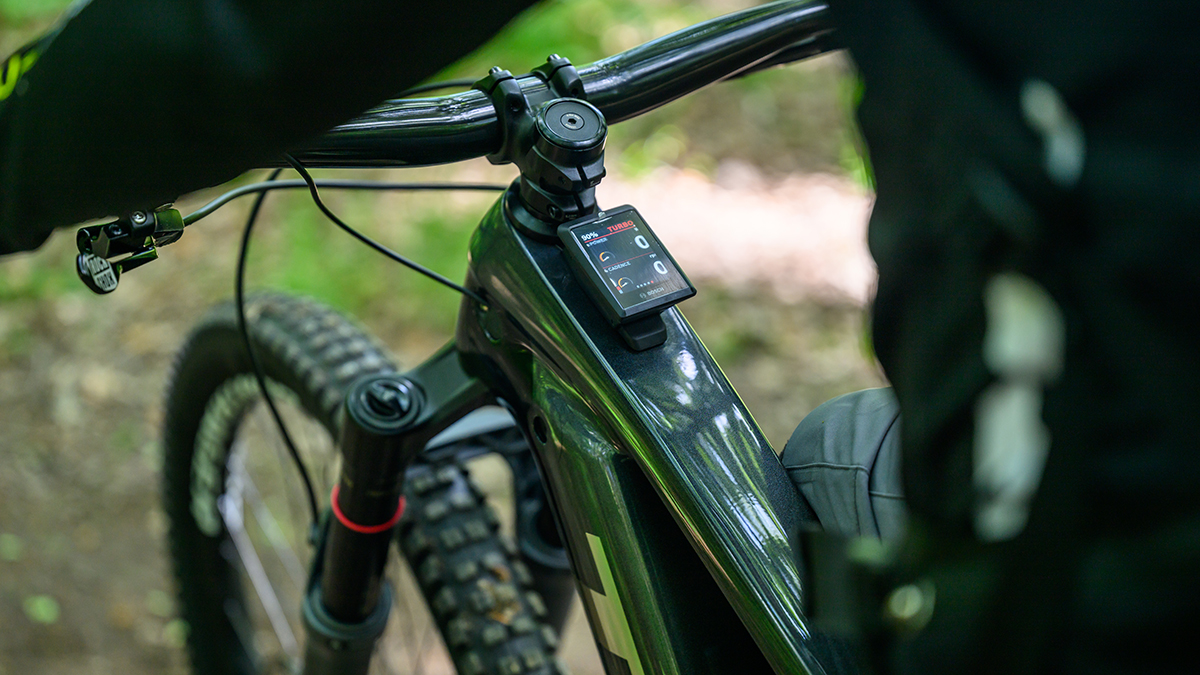
It also comes with a huge 750Wh battery allowing me to go further with more power, perfect for enduro racing where the uphill power stage and tight liaison times mean you can spend more time in turbo mode! However more battery means more weight. All e-bikes are heavy compared to an analogue bike. They range anywhere from 18-25 kg, but now for racing, weight is becoming a big factor as power to weight ratios matters when you want to go as far and as fast as you can on a single battery.
This I think will be the biggest change we see over the next few years with e-bikes becoming lighter as battery and motor technology develops.
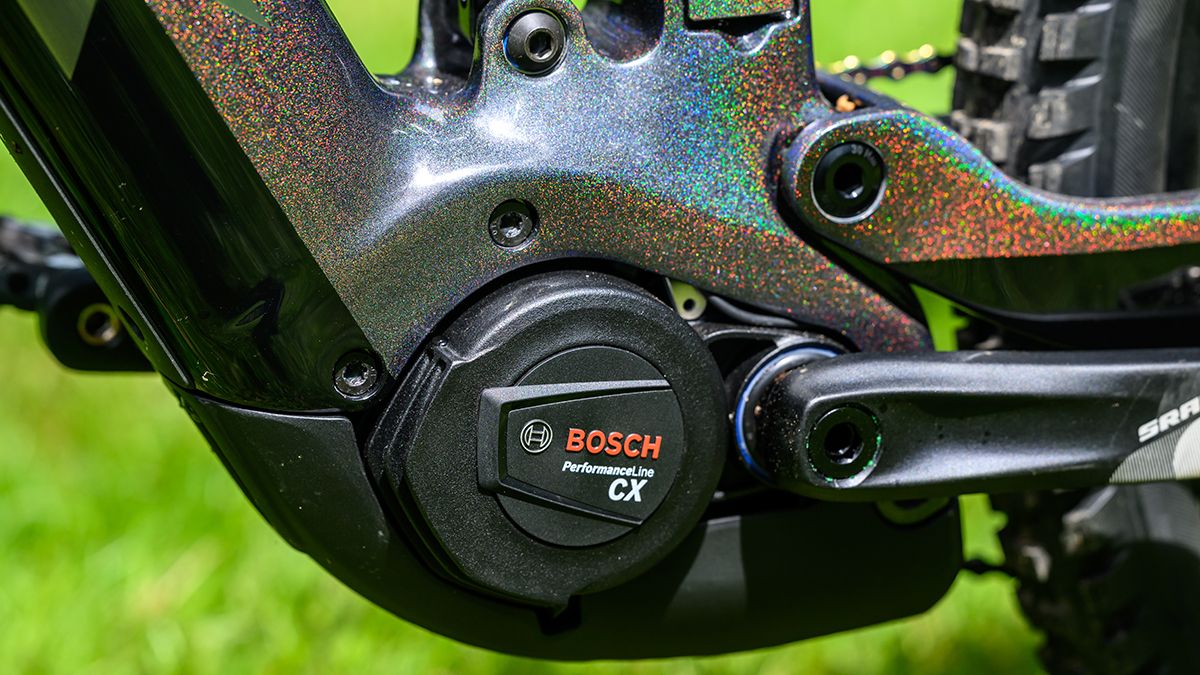
How to choose the right bike for you
Choosing the right e-MTB for you is also an important decision as there are so many options out there now, but thinking about what you need it for is the starting point. Is it for full power and support, as you need this for racing? If so maximum power, battery size and weight are critical. If it's more for adventure and long distance, then more lightweight and longer battery range is key. If it's commuting, maybe bike design for carrying bags, mudguards, accessories and good battery range is key…
For sure, as in every aspect of life, racing and competition always pushes the boundaries and helps research and development of products; it will always play a key part in helping shape future technology and the bikes you see for general use in years to come.
I’m excited to see where the amazing world of cycling goes during the next 25 yrs as the last 25 have been awesome and I’m so grateful to have been a part of it – and for how it has shaped who I am and how I live my life… Here’s to bikes… whatever shape or power mode they are!
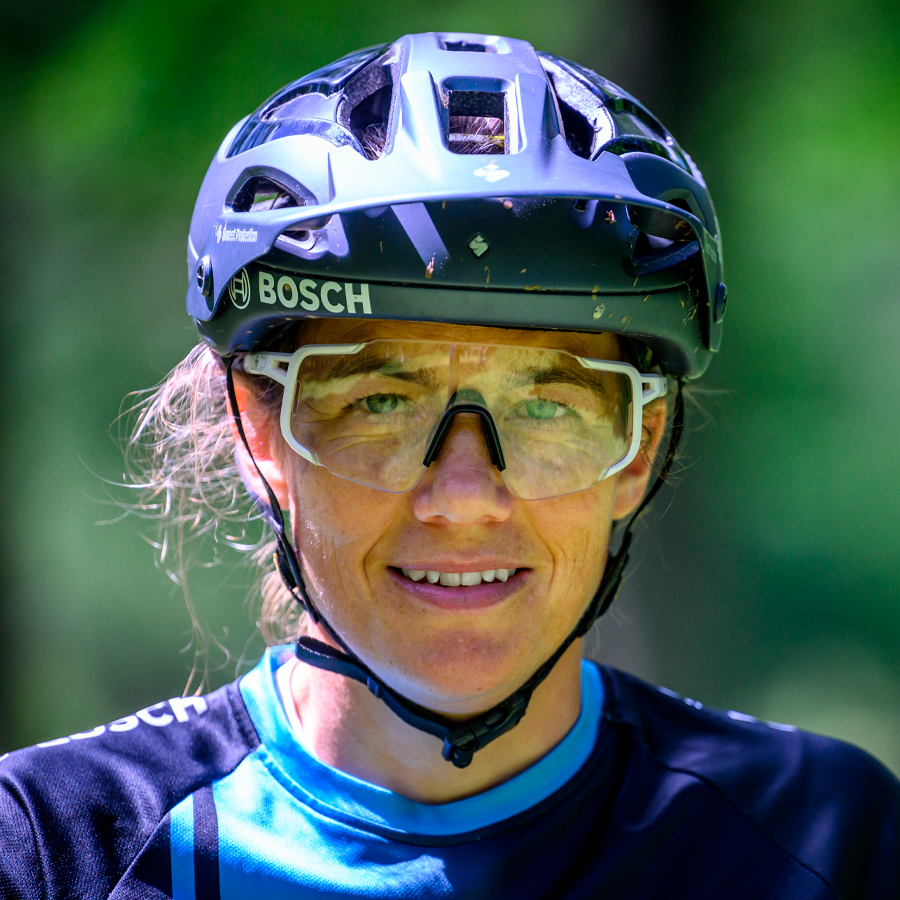
Tracy has been winning major mountain bike races since racing as a junior in 1995 through to the present day. Tracy has three Enduro World Championship titles, one Downhill Championship title and two Downhill World Cup overall wins in her bulging trophy cupboard, plus a host of British National wins in all manner of MTB racing disciplines. After retirement from professional racing, Tracy shifted her focus to e-MTB racing at its inception in 2019 and has taken her tradition of wins and podium finishes to the EWS-E and other event formats. She has also worked as a MTB coach and is a tireless ambassador for mountain biking as a whole.
